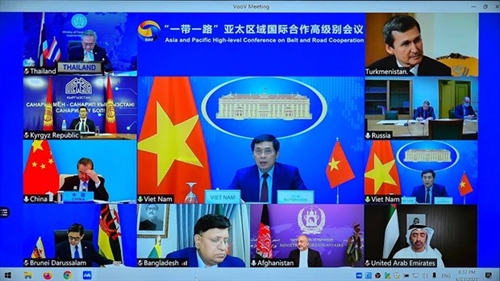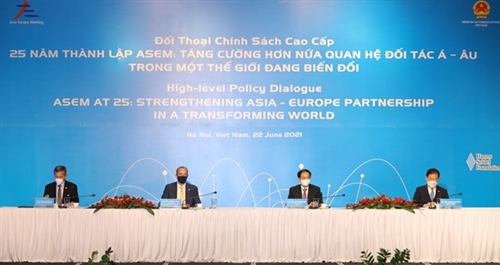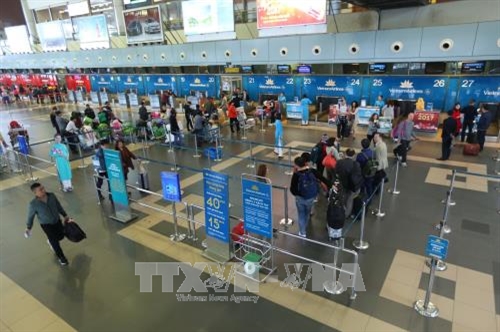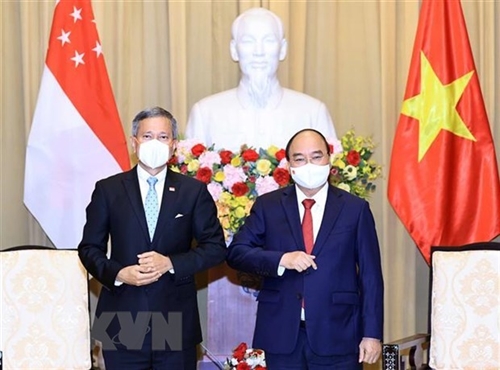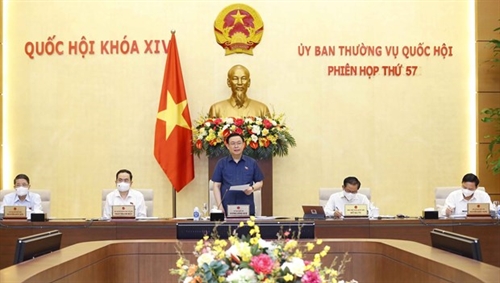by Caitlin Wiesen, UNDP Resident Representative in Vietnam
 |
| Caitlin Wiesen, UNDP Resident Representative in Vietnam__Photo courtesy of UNDP in Vietnam |
Vietnam’s track record in people-centered development is second to none. Putting the needs of the people first was of vital importance in the early days of the COVID-19 pandemic when the Government rejected the false dilemma between protecting the health of the people and supporting the economy.
By acting quickly and decisively, thousands of lives were saved, and Vietnam was able to exit lockdown earlier than most. Because of its focus on people, Vietnam was one of the few countries around the world to record a positive rate of economic growth in 2020.
The transient poor
Vietnam’s management of the pandemic last year carries with it some lessons for today. Around the region, we are witnessing a resurgence of the virus as new, more contagious variants emerge.
Ultimately, our ability to get the pandemic under control depends on the speed with which the Government can deliver vaccines, first to frontline workers and vulnerable people including the elderly and people with pre-existing conditions, and then to the general population.
Last year, UNDP, UN Women and the Center for Analysis and Forecasting of the Vietnam Academic of Social Sciences carried out a Rapid Impact and Monitoring Survey (RIMS) of more than 1,000 vulnerable households and businesses.
RIMS was conducted in two rounds, at the height of the pandemic in April-May and in November 2020 when the spread of the virus was mostly under control.
The survey, which was launched to support the Government’s efforts to reach vulnerable households and individuals during the pandemic, focused on informal workers and female-led micro-enterprises in rural and urban areas.
The surveys found most of the vulnerable households identified under existing social assistance programs were also supported during the pandemic, but that many of the “transient poor” - meaning people that had recently lost their main source of income due to the pandemic - found it more difficult to get help.
The second round of RIMS carried out in November 2020, revealed that about two-thirds of households were still affected by the pandemic six months after the peak in May. Respondents reported reduced working hours, work sharing, and households with businesses continued to suffer reduced incomes.
Measures are needed to help the transient poor cope with the loss of income as social distancing measures are introduced to control the latest surge in the virus.
Cash transfers for workers on industrial estates affected by lockdowns serve the double purpose of supporting workers who have lost their jobs and discouraging people living in affected areas from returning home, where they could potentially spread the virus. In other locations, public works programs are effective because they are self-targeting.
Centrally funded, but locally implemented and gender-neutral public works initiatives can provide immediate support to vulnerable people in affected communities.
Building forward better
The UNDP is working closely with the Ministry of Labor, Invalids, and Social Affairs to introduce digital reporting mechanisms to generate data on poverty and living conditions more rapidly. The availability of real-time statistics would help policymakers act quickly to reduce transient poverty. UNDP also supports the use of national identification numbers as the basis for social assistance and social protection programs in place of residence.
At least 15 per cent of Vietnamese people do not live where they are legally registered, which makes it more difficult for Government agencies to deliver social assistance and social protection programs to them.
By delinking eligibility from residence, more people would be able to participate in these programs.
Citizenship-based social protection systems are fair and build social solidarity. Since poverty is closely associated with life-cycle events, categorical forms of social protection are effective at reducing the incidence of poverty and responding quickly to emergencies like pandemics and natural disasters.
Child benefit, social pensions and social assistance programs for people living with disabilities are easy to administer and to adjust at times of crisis.
Digitization of public services like social protection will help streamline implementation and provide policymakers with vital information on coverage and impact. E-banking will reduce the cost of delivering cash benefits and save program administrators and recipients time and inconvenience.
But digitization also carries risks. Cybersecurity has risen to the top of the international agenda as attacks on e-businesses and governments grow more frequent and brazen.
At the same time, extra efforts are required to widen access to communications technology and prevent the digital divide from intensifying the economic divide between rich and poor.
The General Statistics Office recently released revised multidimensional poverty (MDP) indicators for 2016-2020, which show steady improvement across all dimensions of deprivation, including education, health, housing, water and sanitation and information.
The reduction in the incidence and intensity of MDP reflects the Government’s commitment to developing essential infrastructure and services even in rural and remote areas.
In collaboration with the UNDP, the GSO has moved quickly to apply international standards in the derivation of MDP indicators and has continued to refine the methodology for the next period, including new dimensions like nutrition and employment.
Tracking MDP in a timely and rigorous manner is an important contribution to Vietnam’s efforts to eliminate poverty and achieve all the Sustainable Development Goals by 2030. Timely, accurate statistics are vital to raising awareness, tracking progress and providing policymakers with essential information about what is working and what is not.
Viet Nam has succeeded in containing the coronavirus pandemic because of bold, decisive action and an unwavering commitment to inclusion.
Now the focus is on the rapid and universal distribution of vaccines.
Vaccinating every adult citizen is a massive undertaking that will test the energy and ingenuity of officials, health workers and community leaders at all levels.
This is a challenge that the Government and people of Vietnam will meet head-on, offering the world another lesson in the meaning of leaving no one behind.- (VNS/VLLF)


